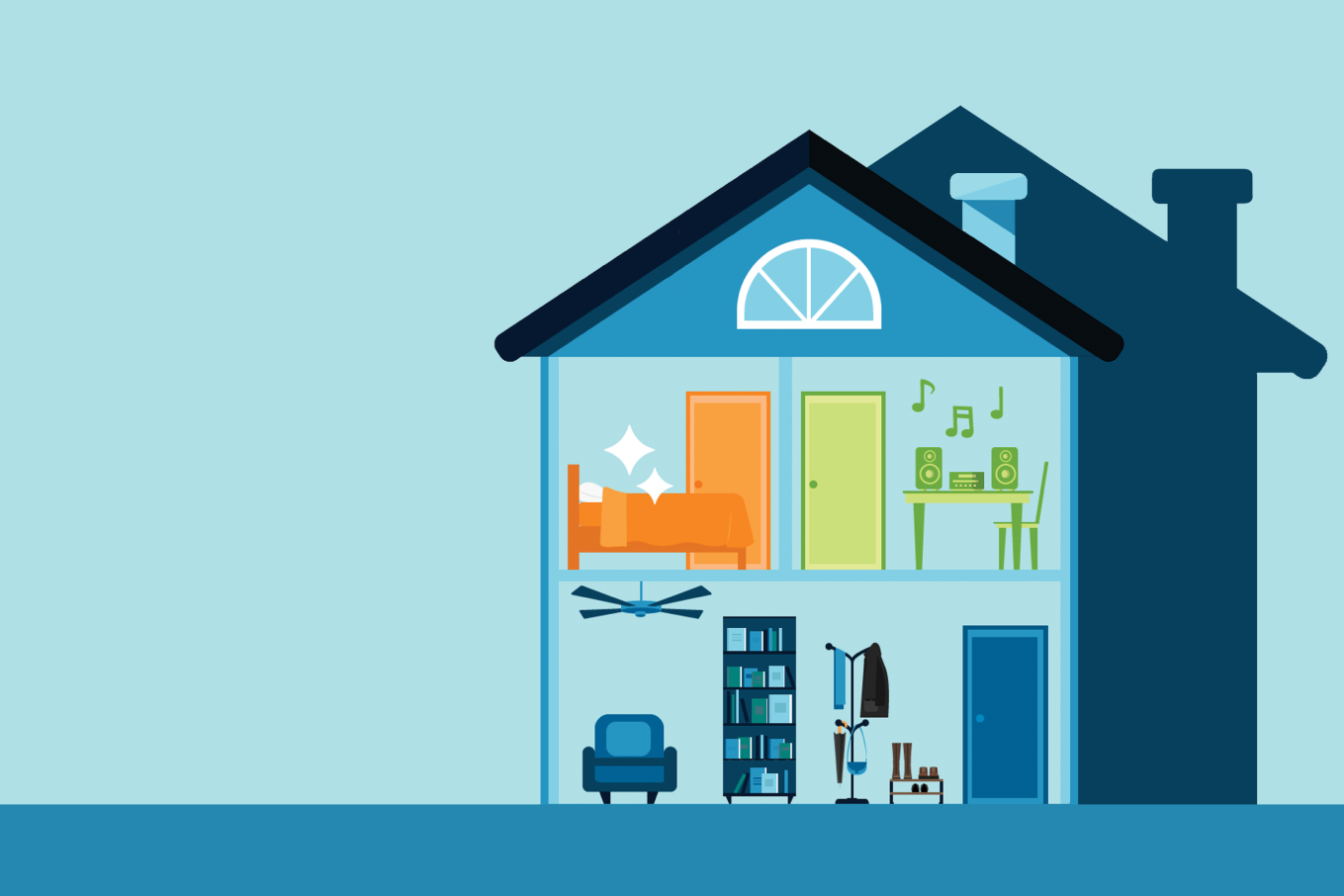Your home should be your refuge. It should clear away the day’s distractions and help you feel organized, focused, and calm. Oooooom.
So why does it feel less like a yoga studio and more like the middle of a five-lane intersection?
Maybe a different perspective on your habits and routines is all you need to fix it.
That’s what a couple of psychologists — and anxiety experts, to boot — say. Here, they share some stress-nixing habits that can make your home a source of solace. Consider this your prescription for a totally chill home.
#1 Regularly Ditch What Annoys You
A few times a year, look over everything sitting out in your home. If it doesn’t serve a present-day purpose or make you feel good, it’s got to go.
Keeping things around out of guilt — the Pilates mat you haven’t touched in months or the handmade quilt from Grandma that isn’t quite your style — only crowds the eye and brings on stress, says Perri L. Zinberg, Ph.D., a clinical psychologist in Los Angeles.
#2 Use a Drop Zone Every Time You Walk in the Door
Avoid the distress of searching for your keys (OMG, again?) by designating a bowl or cubby for items like sunglasses, your wallet, or your phone that you frequently need to grab on the way out the door. Oh, and use it. On the way in. Every single time.
#3 Delegate the Chores Everyone Hates
No one has ever reached nirvana while being their household’s chore martyr. Distribute chores among family members and rotate them weekly so no one feels stuck with the same task.
If it’s an option, schedule a housekeeper to stop by once a month. It could be way more therapeutic than you expect. “Having a house cleaner of some sort has saved a lot of marriages, because [a home’s cleanliness] is one of the major things people fight over,” Zinberg says.
#4 Fill Your Home With the Sounds You Love
Tune out the literal (and mental) noise of the day by turning on whatever music or sounds make you happy or calm. A playlist that speaks to you can motivate you to sit back and enjoy your home’s peace or fire you up to do a deep clean, which satisfies both your body and soul.
#5 Enjoy the Silence, Too
A TV or radio droning on in the background keeps your brain buzzing. “Make sure there are times when there’s no noise in the house,” says Amy Wood, Psy.D., a psychologist in Portland, Maine. “It’s very soothing and healing and meditative.” Create a set time — during dinner prep or right before bed, perhaps — for pure, luxurious quiet. Ahhh. . . .
#6 Put Out-of-Season Items Out of Sight
Twice a year — or quarterly, if you’re a true clotheshorse — put out-of-season clothing and bedding into storage. You won’t believe how luxurious it feels to effortlessly browse through your clothing options with more elbow room in the closet. If you’re short on storage space, get a few under-bed containers or inexpensive vacuum-seal bags.
#7 Make Your Bed
Turns out your mom was right. Sorry. Research has found people who adopt this habit are happier overall. And it’s much more pleasant to slip into a neatly made bed at the end of a long day, Zinberg says.
#8 Take Tech Time-Outs Daily
You can’t unwind if you never unplug. Find an outlet near the door and create a charging station where you can drop your phone, laptop, and tablet when you get home.
You can even set your phone to airplane mode for a set period of time every day, Zinberg suggests.
And while Google, Siri, and Alexa can be helpful tools, artificial intelligence can distract from relaxation, bonding, and learning time with family, Wood points out. So, include them in the nightly blackout.
#9 Dim the Lights Every Night
Turning down the lights sends a visual cue to your brain that it’s time to chillax. So install dimmers on your bedroom and family room outlets and make sure your bulbs emit relaxing warm light (around 2,700K) rather than cool light, which tends to energize instead of chill.
Every night, perhaps after dinner, take a second to dim your home into evening mode.
#10 Make Time and Space for Your Hobby
Hobbies aren’t an indulgence: They’re a necessity for good mental health. “You must make room for the things that feed your soul,” Zinberg says.
This can be as simple as assigning a chair as your reading nook or outfitting the corner of a room for crafting, Wood suggests. That makes it much easier to nestle into the thing that gives you respite.
#11 Pause Before You Purchase
Get in the habit of pausing — for 24 hours — before you hit “buy” on a new item for your home. Consider how that new dresser or rug could affect your overall stress level.
Will you go mad trying to keep it clean? Is it so flimsy you’ll be buying a new one next year? If so, it’s not worth the anxiety, no matter the low, low price. Zinberg recommends buying old, well-built furniture and having it refinished. “It costs about the same as the pressed-board stuff, which you have to put together yourself and doesn’t last as well over time,” she says. And, it should be said, you deserve high-quality things.
Related: Super-Busy People Reveal Their Habits for a Tranquil Home
